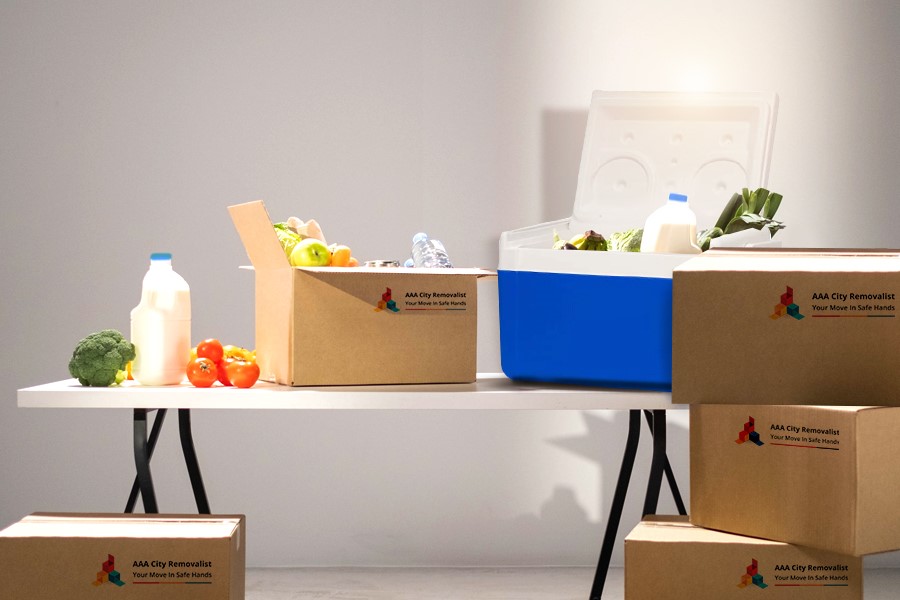Packing and unpacking are the least appealing tasks after deciding to relocate. But, of course, there is always a way to get out of it. By considering AAA City Removalist, you save yourself from the inconvenience and pain of packing and unpacking. However, you will still need to handle items the professionals refuse to transport.
It is when the list of non-allowable items comes into the picture. Do not worry because the moving company will give you a list of non-allowable items when Packing. You need to know the restricted or prohibited items to plan what to do with those items.
Here’s the list of AAA City Removalist’s non-allowable items.
What are hazardous materials? These are substances that can harm health or the environment. Generally, hazardous materials are categorized as corrosive, flammable, and explosive. You’d be surprised to see hazardous materials daily. Moving companies consider the following hazardous materials:

If you cannot bring these materials with you, it is better to dispose them off. But you have to be mindful of its proper disposal in compliance with your local laws to protect human health and the environment. Contacting your city for the appropriate disposal area is the best option.
With written notice, some moving companies can allow transport of restricted items. However, it will be at your own risk because it will be denied if you file a claim for damage or loss. Moving companies consider the following restricted items:
If there is a need to transport these items, you have to research the average season temperature during the move. It can help you plan what to exclude, especially items that can be adversely affected by cold, heat, or humidity.
Long-distance moving does not allow food items because they can attract rats and pests that can damage your space if spoiled. Moving companies consider the following perishables:

If the move takes less than 24 hours, some companies allow these perishables to be transported. Ensure that food items are correctly packed to keep them from spoiling. You have to plan and organise to be successful at this.
Sentimental items are things that include anything that brings up memories and emotions. Most moving companies avoid transporting sentimental items to limit their liability if these items are damaged or lost. After all, they are regarded as “priceless”. Moving Companies consider the following as sentimental items or personal.
Unless your sentimental item is bulky and heavy, you can carry it in the car. Then, you will feel at peace knowing that your passport, medical records, insurance policies, school records, chequebooks, financial records, title documents, etc., are within your reach.
Packing will be entirely up to you, but some tips can make things easier. The first tip is to make sure that everything is labelled. Then, you can utilise different tags or stickers on every box. Another tip is to pack heavy objects at the bottom of the boxes and lighter things at the top. But, if you would rather rest, you should get help from AAA City Removalist.
Take an inventory of your refrigerator on moving day. Secure a cooler or container with ice packs to store frozen food items. It can save your food from spoiling, especially if there are delays. However, if you have eggs or raw meat, it is better to leave them.
As a courtesy to your landlord or the next occupant, you must clean your old place before leaving. The good news is that moving companies provide a cleaning service – of course, at an additional cost. By leaving the space clean and clutter-free, you ensure that you do not leave anything behind during the moving day.
Movers typically won’t transport hazardous materials, perishable goods, or items that could be damaged during transport. This includes:
Flammable liquids (gasoline, paint thinners)
Acids and corrosive materials
Flammable aerosols
Explosives and ammunition
Perishable food items
Plants
Certain cleaning supplies
As a courtesy to your landlord or the next occupant, For safety and efficiency, movers prefer items to be packed in sturdy boxes. Loose items can pose a risk of damage during transport.
Non-perishable pantry items are generally okay to move, but it’s best to check with your removalist company for any restrictions. For long-distance moves, consider the cost effectiveness of transporting heavy canned goods versus replacing them at your company any destination.
Heavy items, Sentimental items with digital alternatives (scanning photos, documents, or memorabilia), hazardous or flammable materials.
Non-allowable items typically refer to hazardous materials, perishable goods, or items that could be a safety risk during transport.
It depends on the type of battery. Loose lithium batteries are generally not allowed. However, securely packed batteries containing sealed batteries are usually okay. Always check with your removalist company for their specific policy on batteries.
It depends on the type of battery. Some cleaning supplies are considered hazardous materials due to their flammable or corrosive nature. Never pack any harsh chemicals, ammonia, drain cleaners or bleach. Milder cleaning products like dish soap, or disinfectant wipes are generallly acceptable. Always check the label and consult with your removalist company if unsure.